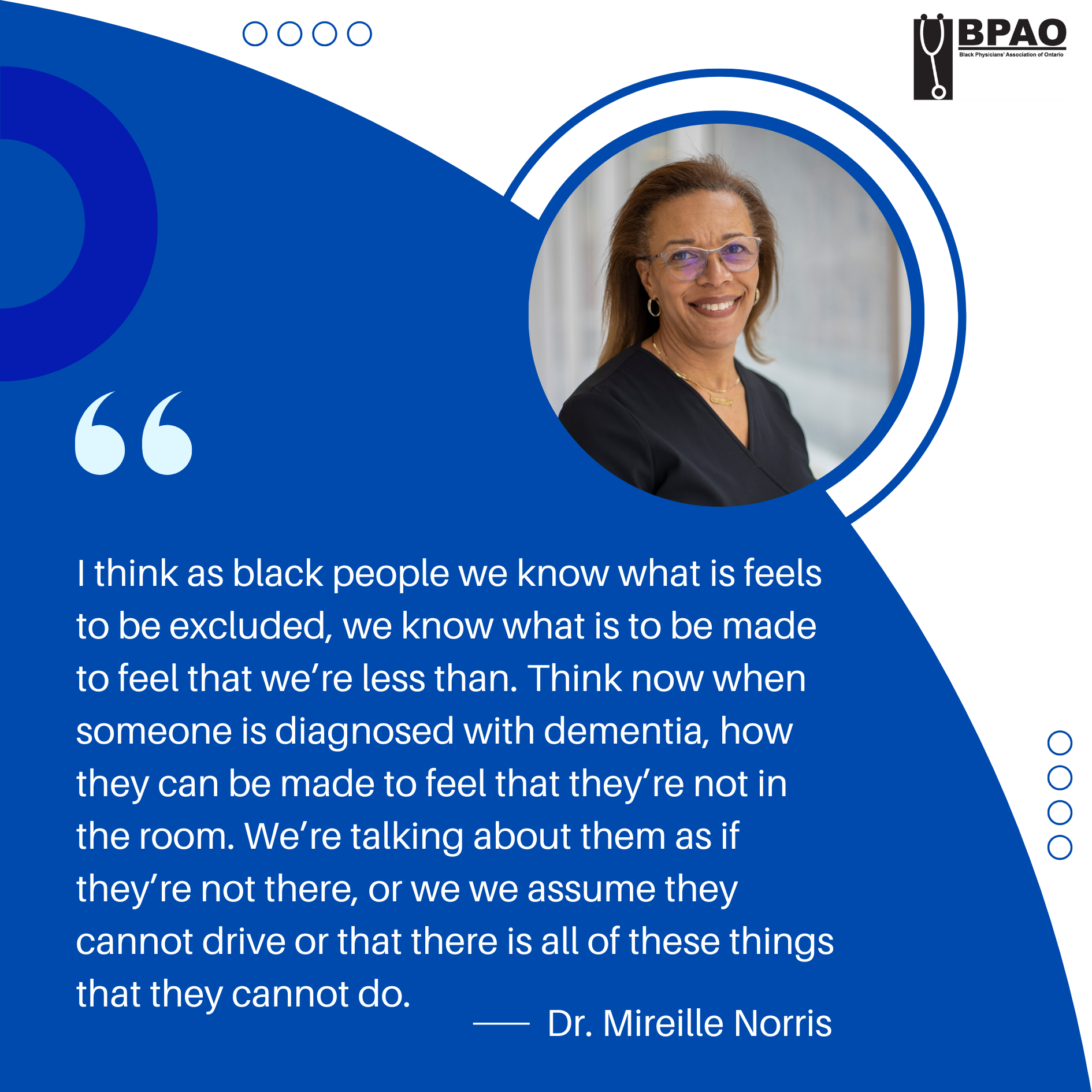Dr. Norris’ Approach to Medical Education, Mentorship, and Patient Care
Spend some time with Dr. Mireille Norris, and you'll immediately feel her passion for mentorship and creating space for Black medical learners, residents, and physicians—where they are seen and recognized for their efforts. Dr. Norris hails from Haiti and came to Canada as a small child. Like many children that have experience being the only Black student in a class or school, she felt rejected and excluded. Pushing her toward books and a deep love of learning and driving her to continuously strive for excellence.
Despite always knowing she wanted to be a doctor, Dr. Norris’s journey into medicine was not straightforward. She applied to medical school three times over six years. After being rejected the first time, she pursued her second choice—Physiotherapy at McGill in English despite being Francophone. The second time, she made it to the interview stage but, without mentorship or coaching, was not admitted. She continued working as a physiotherapist and applied a third time—this time, she was accepted. A consistent theme in Dr. Norris’ journey and her career is her perseverance. Particularly in education, she continuously overcame the exclusion she experienced. She noticed how easily her peers had been admitted into the program, regardless of her own experience and academic merits. Despite excelling in her class, she was never nominated for awards and was often made to feel like she didn’t belong.
However, it was at her time at the University Of Miami where she felt her eyes open. Strangers were highlighting her value, whereas the school that’s known her for over eight years made her feel as though she wasn’t deserving. For Dr. Norris, the silver lining to her experience of exclusion and rejection is that she can now, as a physician and mentor, show much more empathy and patience to others who face similar experiences.
As a Geriatrician, she focuses on frail seniors, particularly those with dementia or in nursing homes. She works to close critical gaps by offering home visits to those in subsidized housing, providing geriatric assessments to Francophone seniors—half of whom are Afro-Caribbean—and collaborating with family doctors by traveling to their offices to better support patients. Her own experiences of exclusion, both in school and medical training, fuel her compassion for others navigating structural racism.
At Sunnybrook, Dr. Norris saw the urgent need to recruit international medical graduates. She developed a hospitalist training program that valued, recruited, and mentored them. By design, her program fostered diversity, ensuring physicians from marginalized backgrounds received the support they had long been denied. Through this program, Dr. Norris built a strong reputation. In 2020, she was recruited as the inaugural Department of Medicine Faculty Lead for Black and Indigenous learners at Temerty Faculty of Medicine.
Her lived experience—navigating education systems without mentorship, feeling like an outsider, and struggling to find guidance has shaped her approach to mentorship. Dr. Norris channelled these lessons into her work, earning the Excellence in Teaching Award for her dedication to shaping the future of medical education at last year’s BPAO Black Joy Gala. Her impact extends beyond mentorship. She is widely respected in her field, receiving accolades such as the Lifetime Achievement Award from Black Physicians of Canada and the King Charles III Coronation Award. Now entering her sixth decade, these honours reenergize her. They give her a renewed sense of purpose, fuelling her commitment to medical education, mentorship, and scholarship. As she puts it, "Being recognized gives me the energy not to quit."
As January marks Alzheimer’s Awareness Month, we asked Dr. Norris what she wishes the Black community knew about dementia prevention. Her response? A simple yet powerful reminder: extend more empathy and compassion to those living with the condition. Saying, “I think as Black people we know what it feels to be excluded, we know what is to be made to feel that we’re less than. Think now when someone is diagnosed with dementia, how they can be made to feel that they’re not in the room. We’re talking about them as if they’re not there, or we assume they cannot drive or that there are all of these things that they cannot do. Maybe if you see it from that lens, what it’s like to be excluded as if you don’t matter and you’re not fully there– and we do that with older people with dementia.” She reminds us that we can optimize brain function and there are ways to slow down the progression to help with symptoms. For instance by optimizing blood pressure, controlling diabetes, optimizing sleep, avoiding smoking, avoiding drinking, and exercising. However her message of extending more empathy and compassion is a reminder of what we can do to support those living with the condition and their families as well.
Dr. Norris will be speaking at our upcoming 16th Annual Health Symposium discussing Dementia and Fall prevention.



